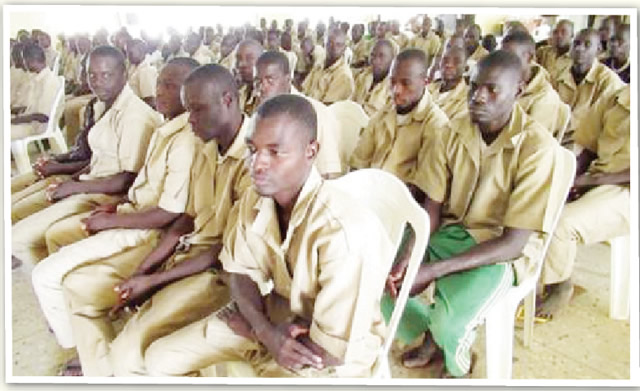THE Federal Government of Nigeria has officially commenced Phase 7 of the Kainji Mass Trials, a judicial exercise focused on prosecuting hundreds of individuals suspected of involvement in terrorist activities across the country.
In a statement issued on Wednesday by the National Counter Terrorism Centre (NCTC) under the Office of the National Security Adviser (ONSA), the trials are described as a critical pillar of Nigeria’s multi-pronged effort to combat terrorism through the rule of law and institutional accountability.
“These trials represent Nigeria’s unwavering pursuit of justice and reaffirm our national resolve to confront terrorism through lawful and transparent means,” said Maj.-Gen. Adamu Laka, the National Coordinator of the NCTC.
Maj.-Gen. Laka praised the return of a broad coalition of stakeholders—the Judiciary, law enforcement agencies, legal practitioners, international partners, and civil society actors—for once again uniting to uphold justice amid one of Nigeria’s most pressing security challenges.
“It is encouraging to witness this convergence of purpose and duty,” he said.
“These trials are not merely legal proceedings; they are a cornerstone of our national commitment to justice, transparency, and adherence to international human rights standards.”
The Kainji Mass Trials, held at a secure military facility in Niger State, began in 2017 and have become a central platform for prosecuting individuals linked to Boko Haram, ISWAP, bandit groups, and other violent extremist factions.
Thousands of suspects have been tried in previous phases, with outcomes ranging from convictions and acquittals to case dismissals for lack of evidence.
General Laka further noted that the legal reforms and improved capacity in handling terrorism-related cases are directly tied to Nigeria’s efforts to exit the Financial Action Task Force (FATF) Grey List, where the country was placed due to deficiencies in tackling terrorist financing and money laundering.
“Indeed, the advancements made through these trials have greatly contributed to Nigeria’s efforts toward exiting the FATF Grey List,” Laka said.
The FATF Grey List is reserved for jurisdictions under increased monitoring due to strategic deficiencies in combating illicit financial flows. Nigeria’s progress in the criminal justice response to terrorism is seen as a key step toward restoring global financial confidence and unlocking foreign investment flows.
The Attorney General of the Federation and Minister of Justice, Prince Lateef Fagbemi (SAN), through his representative Mohammed Babadoko, the Director of Public Prosecution of the Federation, reiterated the government’s commitment to ensuring that both victims and the accused receive justice in accordance with constitutional and international legal standards.
“We remain resolute in our determination to ensure justice is served within a framework that respects the rule of law and human rights,” the Attorney General said.
He commended the collaborative effort between the ONSA, Federal High Court justices, Ministry of Justice, security agencies, and international partners, noting that such coordination is essential for an effective and legitimate counter-terrorism response.
“It is only through shared commitment and a transparent process that we can deliver justice, restore public trust, and demonstrate to the global community that Nigeria is serious about due process,” Fagbemi added.
The continuation of the Kainji trials is widely viewed as a necessary component of Nigeria’s long-term counterterrorism and transitional justice strategy.
Legal experts argue that beyond convictions, these trials help to create a historical record, promote national healing, and send a signal to extremist actors that impunity will not be tolerated.
International partners involved in supporting the trials include the United Nations Office on Drugs and Crime (UNODC), EU and UK law enforcement missions, and civil society observers, all of whom have pushed for enhanced transparency and victims’ participation in the legal process.
As the seventh phase of the trials progresses, thousands of case files are expected to be reviewed, and hundreds of suspects processed based on evidence gathered by security forces over the past year.
Authorities have emphasized that the proceedings will be handled individually, fairly, and without political influence.
“This process is not just about punishment,” said a senior justice ministry official familiar with the trials.
“It’s about restoring the rule of law in areas where it was once absent—and giving victims a voice in the justice process.”







